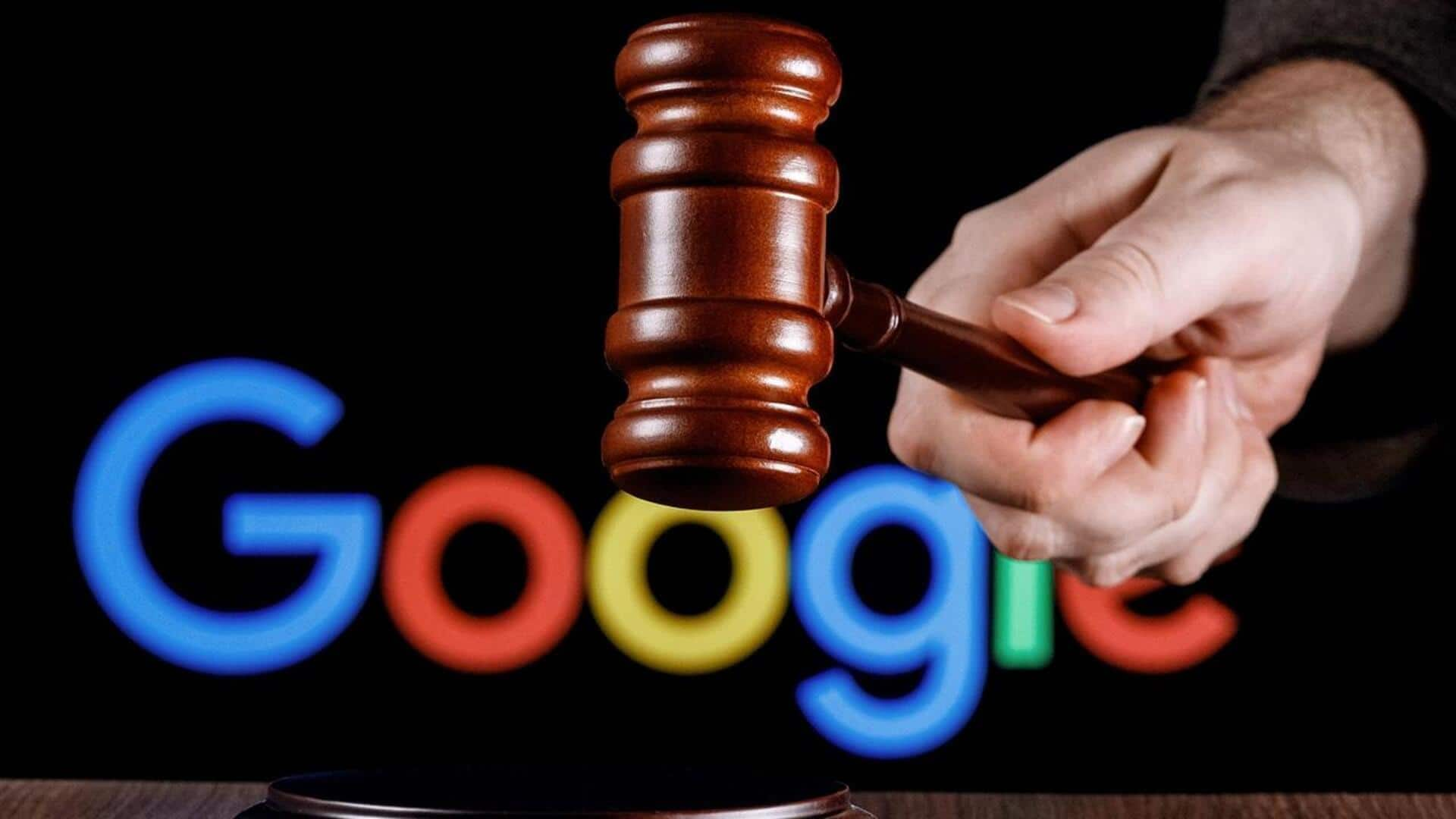
Google facing new antitrust lawsuit over ad tech monopoly
What's the story
Google is facing a fresh antitrust lawsuit, following a judge's ruling last month that labeled its search engine as an illegal monopoly.
The new legal challenge, initiated by the US Justice Department and several states, alleges that Google has established and maintained a monopoly over the technology connecting online publishers with advertisers.
The government claims that this dominance allows Google to retain up to 36 cents per dollar when mediating sales between publishers and advertisers.
Defense strategy
Google refutes monopoly allegations, cites changing digital landscape
In response to the lawsuit, Google argues the government's case is based on an outdated understanding of the internet.
The company points out that today's advertisers are more inclined to use social media platforms like TikTok or streaming services like Peacock for audience outreach.
Furthermore, Google highlights a decline in revenue from $31.7 billion in 2021 to $31.3 billion in 2023 for its Networks division, which includes services like AdSense and Google Ad Manager—the focal point of this case.
Trial proceedings
Antitrust trial begins in Virginia, Google opts for bench trial
The antitrust trial over the alleged ad tech monopoly has commenced in Alexandria, Virginia.
Initially set to be a jury trial, Google managed to switch it to a bench trial by paying over $2 million to the federal government.
This payment effectively nullified the only claim brought by the government that necessitated a jury.
The case will now be decided by US District Judge Leonie Brinkema, known for her involvement in high-profile terrorism trials and complex civil trials.
Trial impact
What are the potential implications?
The Virginia trial follows a significant setback for Google, when a judge in the District of Columbia declared its search engine a monopoly.
This ruling could have far-reaching implications as Google's search engine generates most of its $307 billion annual revenue.
Peter Cohan, a professor at Babson College, suggests that the Virginia case could be even more damaging to Google as it might necessitate divestitures from parts of its ad tech business that generate billions in annual revenue.
Witness testimony
Government's witnesses and Google's counterclaims
In the Virginia trial, the government plans to call executives from newspaper publishers like The New York Times and Gannett as witnesses.
These companies allegedly suffered due to Google's practices.
However, Google refutes these claims, arguing that its fees are not excessive compared to competitors and that its integrated technology ensures fast loading times for ads and web pages while enhancing security.